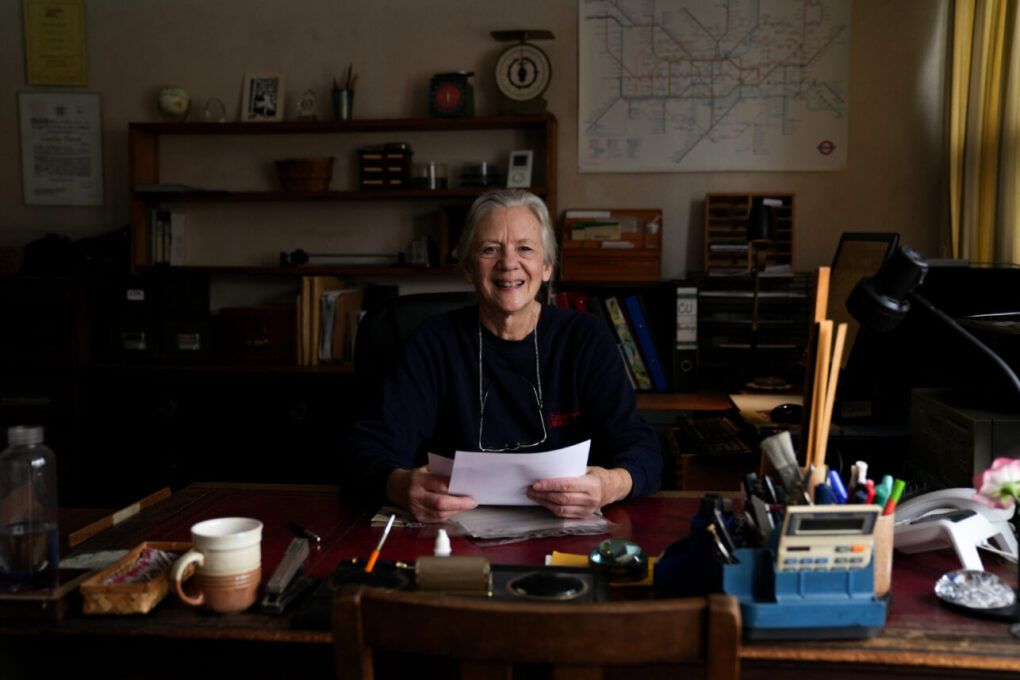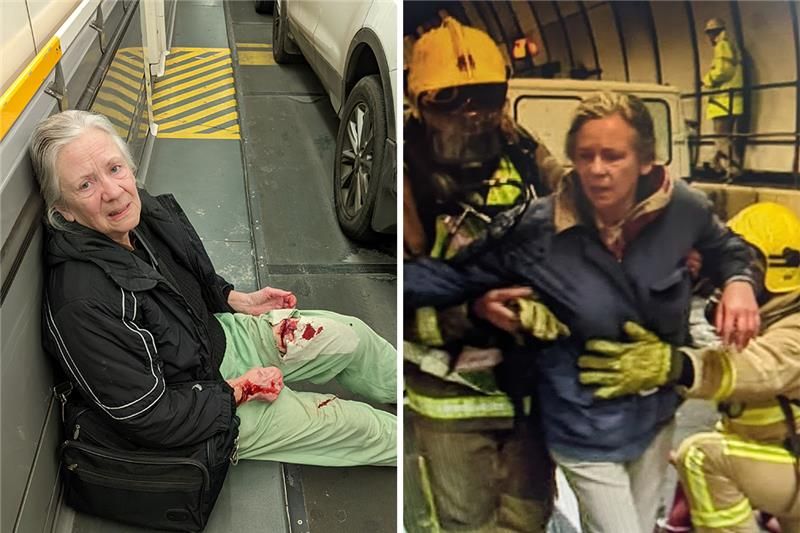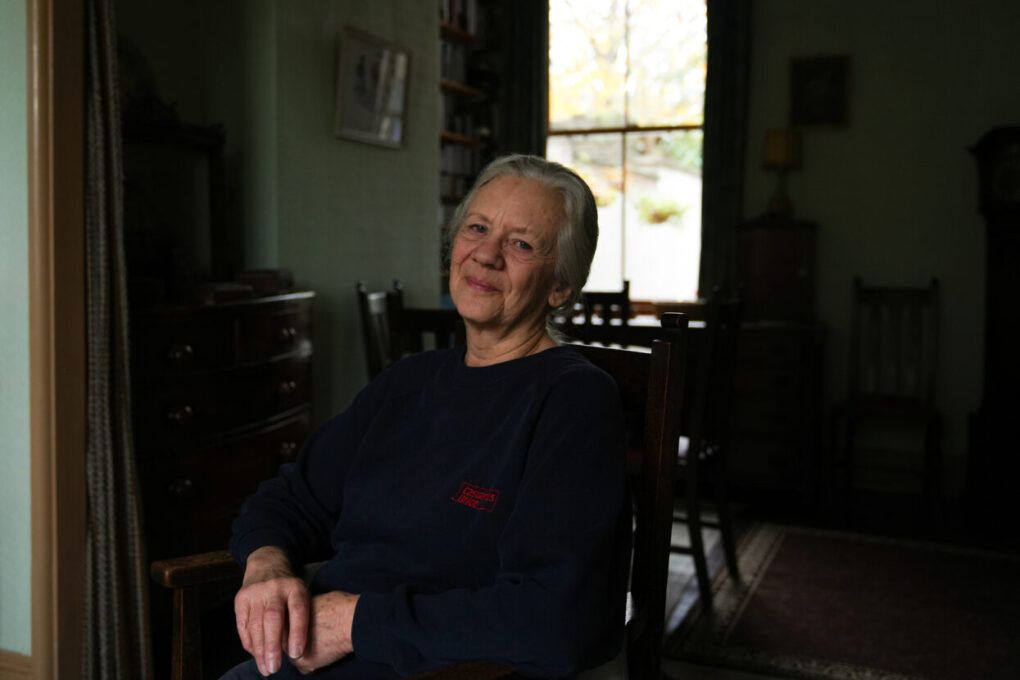‘At 81, I’m fit enough to help train firefighters. I joined Our Future Health so that everyone can enjoy a full life’

It’s probably fair to say that Caroline Thomas is not your average 81-year-old. Since retiring over 30 years ago after a career in travel, banking and first aid training, she has thrown herself into a variety of interesting hobbies. And one of these is being saved by firefighters.
“I’m a senior instructor and branch leader for the charity Casualties Union,” she explains. The charity provides volunteer actors with makeup simulation for anyone needing to practise their lifesaving skills in a safe environment, such as the emergency services.
Over the years, Caroline has volunteered in numerous – and often surreal – scenarios. “I’ve been covered in knife wounds in the Eurotunnel for an emergency exercise,” she says. “Recently I lay on the ground with my guts hanging out for the police to deal with!”
Caroline says that volunteering has helped to keep her more active than ever in retirement – but the same can’t be said of all her peers. It’s one of the reasons she decided to extend her volunteering by signing up to Our Future Health.
“We seem to be getting older but sicker – I see my contemporaries struggling with diabetes, lung problems, heart problems and aching joints,” she says. “Research into the reasons behind this overwhelming trend is important so we can all live long and healthy lives.”
“If I can play a tiny part in helping by joining Our Future Health, I’m really happy to do it.”

Living with leukaemia
Caroline’s interest in health research is also propelled by her own experiences of disease – and the powerful role science plays in managing it.
“My partner Stephen died of leukaemia in 2002,” says Caroline. “He received chemotherapy and had platelets fed into his blood with a drip. For four years, the treatment allowed us to continue having holidays together. Then, one day he developed a terrible fever, and the doctors said he was so weak they could no longer treat him. He was given 48 hours to live.
“I took him home and made him as comfortable as possible. He died peacefully with me by his side.”
15 years later, while attending a routine blood test at her GP, Caroline received a shock diagnosis of her own.
“The doctors spotted something that wasn’t quite right,” she recalls. “I went to the hospital to have another test and was told I have leukaemia. I feared it might be the same disease I’d lost my Stephen to.”
Caroline learned she has chronic lymphocytic leukaemia – very different from the acute myeloid leukaemia Stephen had suffered from. Doctors explained that, with careful management, she could live for many years without the disease affecting her daily life. “I said, ‘that’s good news, because my plan is to live healthily until I’m 110’”, she laughs.
Today, Caroline is monitored every six months, and her leukaemia is progressing extremely slowly. “It’s the best I can expect at this time,” she says, with characteristic positivity.

The leading cause of sight loss
Caroline also suffers from age-related macular degeneration (AMD) in one eye.
AMD affects around 675,000 people in the UK, including the actress Dame Judi Dench, who made headlines earlier this year after sharing that she relies on friends to help her learn scripts due to the condition. It destroys a person’s central vision, often leaving them unable to do day-to-day activities like reading and driving. The condition also makes facial recognition difficult, which can lead to a feeling of social isolation.
AMD can occur in two forms – wet and dry. Some treatments are available for wet AMD, which makes up 10% of cases. Unfortunately, there is currently no treatment for dry AMD, which makes up 90% of cases. It’s a situation that Our Future Health hopes to improve.
“I have wet AMD, so in a way I’m lucky,” says Caroline. “I get injections into my eyeball at my local hospital every eight weeks. It prevents the condition from worsening.
“If Our Future Health helps scientists to learn more about AMD, so everyone can get treatment, that would be brilliant,” she says.
‘Nothing to lose and a lot to gain’
To anyone thinking of joining Our Future Health, Caroline’s message is simple: “Just go for it, you’ve nothing to lose and a lot to gain.”
“Our Future Health could benefit you, it could benefit future generations, and it could help to reduce the pressures on our wonderful NHS,” she says. “It’s a privilege being part of this.”
For more information on leukaemia and age-related macular degeneration, visit bloodcancer.org.uk and actionagainstamd.org. Blood Cancer UK and Action Against AMD are affiliate charities of Our Future Health.

Let’s prevent disease together
By volunteering for Our Future Health, you can help health researchers discover new ways to prevent, detect and treat common conditions such as diabetes, cancer, heart disease, stroke and Alzheimer’s.